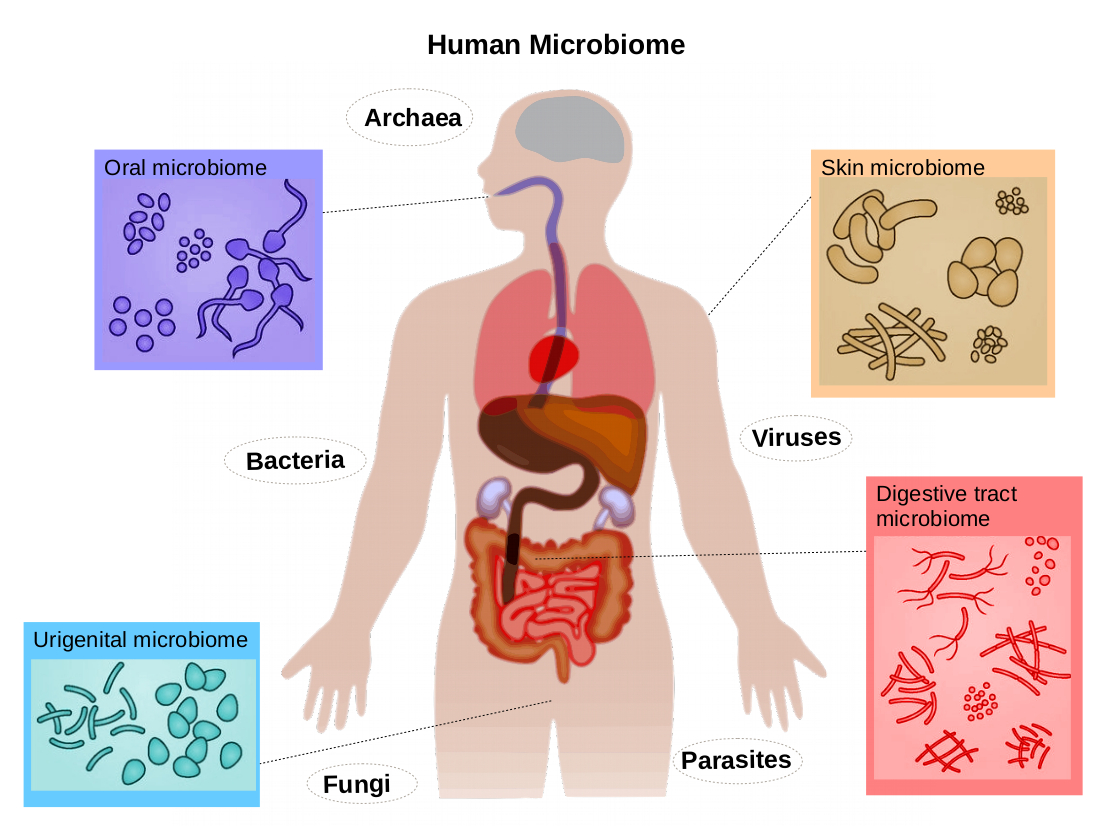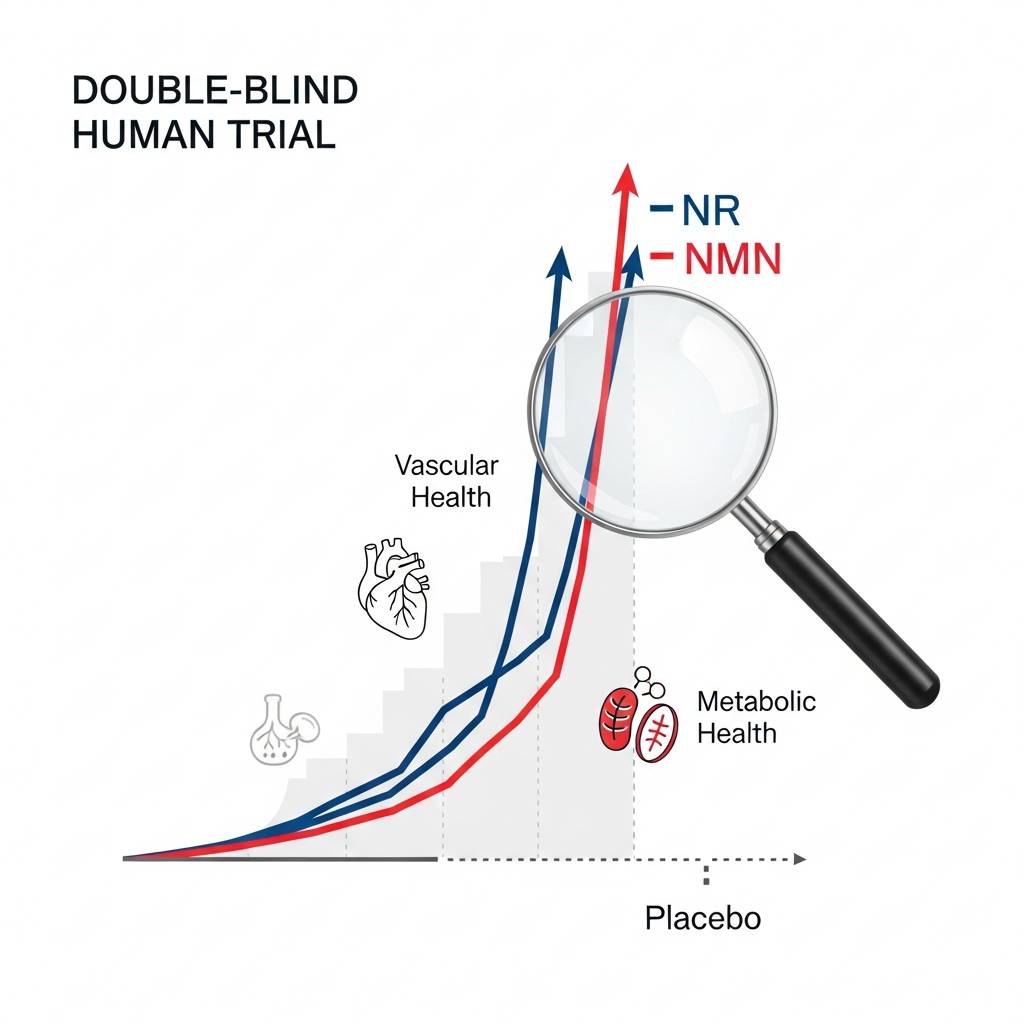Maintaining optimal digestive health is absolutely fundamental for overall well-being, influencing everything from efficient nutrient absorption and robust immune function to even our mood and mental clarity. When individuals face persistent digestive discomforts such as nagging bloating, troublesome gas, unpredictable bowel movements, or a general feeling of digestive sluggishness, it's natural to seek effective solutions. Among the most widely discussed and utilized supplemental aids are digestive enzymes and probiotics. While both categories are designed to champion your gut health, they achieve this through distinctly different biological mechanisms, which often leads to significant confusion about which specific solution is best suited for individual needs or particular digestive challenges.

This comprehensive guide aims to demystify the roles of digestive enzymes versus probiotics, providing a crystal-clear understanding of their unique functions, individual benefits, and crucial distinctions. By the end, you'll be equipped with the knowledge to make informed decisions about when to consider each, or potentially both, as synergistic partners on your journey toward optimal digestive vitality.
What Exactly Are Digestive Enzymes? Unpacking Their Crucial Role
Digestive enzymes are intricate protein molecules, fundamentally acting as biological catalysts within your body. Primarily synthesized and secreted by your pancreas, stomach, and the lining of your small intestine, their paramount role is to systematically break down the complex macromolecules from the food you consume into smaller, simpler, and readily absorbable nutrient units. Imagine them as an army of highly specialized "molecular scissors" meticulously snipping carbohydrates, fats, and proteins into their fundamental building blocks – sugars, fatty acids, and amino acids – which can then be efficiently absorbed into your bloodstream and utilized by your cells for energy, growth, and repair.
Without an adequate supply of these essential digestive enzymes, food particles can remain largely undigested as they transit through your gastrointestinal (GI) tract. This incomplete digestion not only deprives your body of vital nutrients but can also lead to a cascade of uncomfortable symptoms and potentially long-term health issues.
How Digestive Enzymes Operate: A Closer Look at Specificity
The mechanism of digestive enzymes is characterized by remarkable specificity. Each type of enzyme is uniquely configured to target and break down a particular kind of macronutrient through a process called hydrolysis (using water to break chemical bonds). Here's a breakdown of the primary categories:
-
Amylase: This enzyme initiates the breakdown of complex carbohydrates (like starches found in bread, potatoes, and pasta) and simpler sugars into smaller sugar units such as glucose. Amylase is produced in your salivary glands (starting digestion in your mouth) and predominantly in your pancreas. If you experience bloating or gas after starchy meals, an amylase deficiency might be a factor.
-
Lipase: Responsible for the crucial digestion of dietary fats (lipids) into absorbable fatty acids and glycerol. While some lipase is produced in the stomach and mouth, the bulk of this essential enzyme comes from the pancreas. Inadequate lipase can lead to fat malabsorption, characterized by greasy stools, nutrient deficiencies (especially fat-soluble vitamins A, D, E, K), and abdominal discomfort.
-
Protease (including Pepsin, Trypsin, Chymotrypsin, Bromelain, Papain): This broad category of enzymes is dedicated to dismantling proteins into smaller peptides and individual amino acids. Pepsin starts protein digestion in the highly acidic environment of the stomach, while trypsin and chymotrypsin (from the pancreas) continue this process in the small intestine. Plant-derived proteases like bromelain (from pineapple) and papain (from papaya) are also widely used in supplements.
-
Lactase: A specialized enzyme found in the small intestine lining, lactase specifically breaks down lactose, the disaccharide sugar uniquely found in dairy products, into its simpler sugars, glucose and galactose. Individuals lacking sufficient lactase experience lactose intolerance, leading to bloating, gas, and diarrhea after consuming dairy.
-
Cellulase: This enzyme breaks down cellulose, the primary structural component of plant cell walls (dietary fiber). Humans do not naturally produce cellulase; it's typically derived from fungal or bacterial sources in supplements. It can be beneficial for individuals who struggle with digesting fibrous vegetables, potentially reducing associated gas and bloating.
-
Alpha-galactosidase: Often found in over-the-counter products like Beano, this enzyme specifically targets the complex carbohydrates (oligosaccharides) found in legumes (beans), cruciferous vegetables (broccoli, cabbage), and grains. These specific carbohydrates are notorious for causing gas and bloating due to fermentation by gut bacteria. Alpha-galactosidase helps break them down before they reach the colon.
When Digestive Enzyme Supplements May Be Beneficial
Supplementing with digestive enzymes can be a targeted strategy for addressing specific digestive inefficiencies. You might consider an enzyme supplement if you frequently experience symptoms related to suboptimal food breakdown. This can occur due to:
-
Intrinsic Enzyme Deficiencies: The most significant example is Exocrine Pancreatic Insufficiency (EPI), a condition where the pancreas fails to produce adequate digestive enzymes, often due to chronic pancreatitis, cystic fibrosis, or pancreatic surgery.
-
Age-Related Decline: As we age, the body's natural production of various enzymes, including hydrochloric acid in the stomach (which activates pepsin), can diminish, leading to less efficient digestion.
-
Specific Food Intolerances: Beyond lactose intolerance, some individuals struggle with high-FODMAP foods (Fermentable Oligosaccharides, Disaccharides, Monosaccharides, and Polyols) or other complex carbohydrates. Targeted enzymes can help.
-
Post-Meal Discomfort: If you consistently experience symptoms such as bloating, excessive gas, abdominal distension, indigestion, uncomfortable fullness, or even heartburn shortly after consuming meals, particularly large, fatty, protein-rich, or complex carbohydrate-heavy meals, it could signal an enzymatic bottleneck.
-
Nutrient Malabsorption: Despite consuming a seemingly healthy diet, if you exhibit signs of nutrient deficiencies (e.g., unexplained weight loss, fatigue, brittle nails, hair loss), inefficient digestion and subsequent malabsorption could be contributing factors.
-
Gallbladder Issues: Individuals who have had their gallbladder removed or have gallbladder dysfunction may struggle to emulsify fats, making lipase supplementation particularly helpful.
Digestive enzyme supplements are typically taken with meals (often right before or during the first few bites) to synchronize their activity with the arrival of food in the digestive tract, thereby assisting in the immediate and efficient breakdown of nutrients.
What Are Probiotics? Cultivating Your Inner Garden
In stark contrast to enzymes, probiotics are defined as live microorganisms – primarily beneficial bacteria and sometimes yeasts – that, when consumed in adequate, therapeutic amounts, confer a health benefit to the host. They do not directly break down your food. Instead, probiotics are living occupants within your intricate gut microbiome – the vast and dynamic ecosystem teeming with trillions of bacteria, viruses, fungi, and other microbes residing predominantly in your intestines. The central mission of probiotics is to maintain or restore the delicate, symbiotic balance within this complex inner world.
A healthy, diverse, and well-balanced gut microbiome is now recognized as absolutely foundational not only for efficient digestion and nutrient assimilation but also for robust immune system function, the synthesis of certain vitamins, the modulation of inflammation, and even profound influences on mood, cognition, and overall systemic health.
How Probiotics Influence Your Gut and Beyond
Probiotics exert their beneficial effects through a more holistic and ongoing interaction with your gut environment and various physiological systems:
-
Restoring Microbial Balance (Combatting Dysbiosis): Probiotics introduce beneficial strains that actively compete with potentially harmful or pathogenic bacteria for nutrients and attachment sites on the intestinal lining. This "competitive exclusion" helps to prevent the overgrowth of undesirable microbes, thereby correcting or preventing dysbiosis (an imbalance in the gut flora).
-
Strengthening the Gut Barrier: Certain probiotic strains can enhance the integrity of the intestinal lining (the gut barrier). They promote the production of mucin (a protective layer) and strengthen tight junctions between intestinal cells. A robust gut barrier is crucial for preventing "leaky gut" (increased intestinal permeability), where undesirable substances can pass into the bloodstream.
-
Producing Beneficial Metabolites: As probiotics ferment undigested dietary fibers in the colon, they produce valuable byproducts, most notably short-chain fatty acids (SCFAs) like butyrate, acetate, and propionate. Butyrate, in particular, is a primary energy source for your colon cells and plays a critical role in gut barrier function and anti-inflammatory processes. Probiotics can also contribute to the synthesis of certain B vitamins and Vitamin K.
-
Modulating Immune Responses: A staggering 70-80% of your immune system resides in your gut. Probiotics constantly interact with the immune cells within the gut-associated lymphoid tissue (GALT), helping to "educate" and regulate immune responses. This can lead to reduced systemic inflammation, enhanced defense against pathogens, and a more balanced overall immune function.
-
Indirect Digestive Support: While they don't directly break down macronutrients like enzymes, a healthy microbiome fostered by probiotics creates an optimal internal environment. This allows your body's own digestive enzymes to function more efficiently and can aid in the fermentation of resistant starches and fiber, further contributing to gut health.
-
Neurotransmitter Production: Emerging research highlights the "gut-brain axis," revealing that gut microbes can influence the production of neurotransmitters like serotonin and GABA, which play significant roles in mood, stress, and sleep.
Common Probiotic Strains and Their Clinically Recognized Benefits
The world of probiotics is incredibly diverse, and different strains offer distinct health benefits. Therefore, choosing the right strain for your specific need is important. Some commonly researched genera and their associated benefits include:
-
Lactobacillus species (e.g., L. acidophilus, L. plantarum, L. rhamnosus GG, L. reuteri): These are commonly found in fermented dairy products like yogurt and kefir. They are widely studied for their roles in:
-
Supporting overall digestion and nutrient absorption.
-
Reducing the incidence and severity of antibiotic-associated diarrhea (AAD).
-
Alleviating symptoms of Irritable Bowel Syndrome (IBS).
-
Boosting general immune function.
-
L. reuteri specifically has shown promise for infant colic.
-
-
Bifidobacterium species (e.g., B. bifidum, B. lactis, B. longum, B. infantis): These strains are predominant in the large intestine and are crucial for gut health, particularly in early life. They are linked to:
-
Improving bowel regularity and alleviating both constipation and diarrhea.
-
Significantly reducing symptoms of IBS, including pain and bloating.
-
Supporting the integrity of the gut barrier function.
-
B. infantis 35624 (now B. longum subsp. infantis 35624) is well-researched for IBS symptom relief.
-
-
Saccharomyces boulardii (a beneficial yeast): This unique probiotic yeast is not a bacterium and is particularly robust, often surviving stomach acid better than many bacterial strains. It is highly valued for its effectiveness in:
-
Preventing and treating various types of diarrhea, especially antibiotic-associated diarrhea (AAD) and traveler's diarrhea.
-
Supporting recovery from Clostridium difficile infections.
-
Modulating gut inflammation.
-
When Probiotic Supplements May Be Beneficial
You might significantly benefit from a probiotic supplement if you experience:
-
Following Antibiotic Use: Antibiotics indiscriminately kill both harmful and beneficial bacteria in your gut. Probiotics are crucial for helping to quickly repopulate the gut with healthy flora, thereby preventing antibiotic-associated diarrhea and preserving microbiome diversity.
-
Chronic Digestive Conditions: For ongoing issues like Irritable Bowel Syndrome (IBS), Inflammatory Bowel Disease (IBD) (always under medical guidance), diverticulitis, or persistent issues with constipation or diarrhea not attributable to specific foods.
-
Frequent Gastrointestinal Upsets: If you regularly experience bloating, gas, abdominal discomfort, or irregular bowel movements without a clear dietary trigger.
-
Compromised Immune System or Frequent Illness: Given that a significant portion of the immune system resides in the gut, fostering a healthy microbiome can bolster overall immunity and reduce the frequency or severity of infections.
-
Traveler's Diarrhea Prevention: Certain probiotic strains, particularly Saccharomyces boulardii, have demonstrated effectiveness in reducing the risk of traveler's diarrhea when taken before and during travel.
-
General Gut Health Maintenance and Diversity: For individuals who wish to proactively support a diverse, resilient, and thriving gut microbiome for long-term health and well-being.
-
Stress-Related Gut Issues: Given the gut-brain axis, managing stress-induced digestive symptoms can sometimes be aided by a healthy microbiome.
Probiotics are typically taken consistently over time for their systemic and long-term effects on rebalancing and maintaining the gut ecosystem. The timing can vary by product, but often they are recommended on an empty stomach or with a light meal to maximize the survival of the live cultures.
Key Distinctions: Digestive Enzymes vs. Probiotics – A Direct Comparison
Understanding the fundamental operational differences between these two types of supplements is key to choosing the right one for your needs. While both contribute to digestive wellness, their mechanisms and primary goals are distinct:
| Feature | Digestive Enzymes | Probiotics |
| Nature of Substance | Biological catalysts (proteins) that facilitate chemical reactions. | Live microorganisms (beneficial bacteria or yeasts) that colonize and interact with the gut. |
| Primary Function | Directly break down complex food macromolecules (carbs, fats, proteins) into smaller, absorbable units. | Balance and optimize the gut microbiome; support gut integrity and immune function. |
| Mechanism of Action | Chemical hydrolysis: they physically "cut" or dismantle large nutrient molecules. | Biological interaction: they colonize, produce beneficial compounds, compete with pathogens, modulate immunity. |
| Location of Primary Action | Predominantly in the stomach and small intestine, where the majority of nutrient digestion and absorption occur. | Primarily in the small and large intestines, where the gut microbiota resides and performs its functions. |
| Speed/Duration of Effect | Immediate and acute effect: Works directly on the meal consumed, offering rapid relief from undigested food symptoms. | Gradual and long-term effect: Requires consistent intake to establish and maintain beneficial gut flora, yielding ongoing systemic benefits. |
| Source for the Body | Primarily produced by the body (endogenous), though also found in some raw foods. | Not produced by the body (exogenous); must be consumed through diet or supplements. |
| "Live" Requirement | Not applicable; their efficacy depends on their enzymatic activity, not being "alive." | Must be live and viable (measured in CFUs) to reach the gut and exert their health benefits. |
| Primary Goal | To aid digestion and maximize nutrient absorption from meals. | To support gut ecosystem balance, enhance immune function, and contribute to overall systemic health. |
When to Utilize Which (or Embrace Both)? A Targeted Approach
Armed with a clear understanding of their unique roles, you can now adopt a more targeted and effective approach to digestive support.
When to Prioritize Digestive Enzymes:
-
Immediate Post-Meal Distress: If your primary concern is acute discomfort like bloating, excessive gas, or a heavy feeling that occurs within an hour or two after eating, especially if these symptoms are consistently triggered by particular types of food (e.g., a fatty meal, a large protein serving, or dairy if you are lactose intolerant).
-
Addressing Specific Food Sensitivities: When you can pinpoint that certain foods, despite not being true allergies, consistently lead to digestive upset (e.g., using lactase for dairy, alpha-galactosidase for legumes, or a broad-spectrum blend for complex, difficult-to-digest meals).
-
Diagnosed Conditions: If a healthcare professional has diagnosed a condition like Exocrine Pancreatic Insufficiency (EPI) or cystic fibrosis, where enzyme production is clinically impaired.
-
Optimizing Nutrient Absorption: If you suspect nutrient malabsorption despite a healthy diet, an enzyme supplement can help ensure that the food you eat is properly broken down for your body to utilize.
-
Age-Related Digestive Changes: As enzyme production naturally declines with age, older adults may find digestive enzyme supplements beneficial for more comfortable and efficient digestion.
When to Prioritize Probiotics:
-
Restoring Gut Microbiome Balance: Crucially, after a course of antibiotics, which disrupt the gut flora. Probiotics are invaluable for repopulating beneficial bacteria and mitigating antibiotic-associated digestive issues.
-
Managing Chronic Gut Conditions: For ongoing symptomatic relief in conditions like Irritable Bowel Syndrome (IBS), certain Inflammatory Bowel Diseases (IBD) (always under strict medical supervision), or persistent issues with bowel regularity (both constipation and chronic diarrhea).
-
Bolstering Immune Health: If you are prone to frequent infections or are looking for broader immune system support, given the profound link between gut health and immunity.
-
Preventing Traveler's Diarrhea: Certain strains, like Saccharomyces boulardii, are well-established for their efficacy in preventing or reducing the severity of digestive upsets during travel.
-
Supporting Overall Gut Ecosystem Health: For individuals who seek to proactively maintain a diverse, resilient, and thriving gut microbiome as a cornerstone of overall wellness and disease prevention.
-
Addressing Mood and Cognitive Links: For those exploring the burgeoning research on the gut-brain axis and seeking to support mental well-being through gut health.
Can You Take Them Together? A Powerful Synergistic Approach
Absolutely! In many clinical and practical scenarios, digestive enzymes and probiotics can be safely and highly effectively taken together, often creating a powerful synergistic effect. They don't interfere with each other's functions; rather, they complement them beautifully, tackling different yet interconnected facets of digestion:
-
Enzymes perform the vital "prep work," meticulously breaking down large food particles into smaller, more manageable units. This process not only makes nutrients more available for absorption by your body but also for your resident gut bacteria. Well-digested food reduces the burden on your intestines and can minimize symptoms like gas and bloating that arise from fermenting undigested material.
-
Probiotics then work on optimizing the "environment" itself. They ensure that your gut lining is robust, the microbial population is balanced, and the conditions are ideal for efficient nutrient absorption and overall digestive harmony. A gut that receives pre-digested nutrients (thanks to enzymes) is better equipped to utilize them and thrive.
This combined approach can be particularly beneficial for individuals facing complex or multi-faceted digestive challenges, or for anyone seeking to maximize their digestive efficiency and holistic gut health. As with any supplement regimen, especially if you have underlying health conditions, are pregnant, nursing, or taking medications, it is paramount to consult with a qualified healthcare professional to determine the most appropriate dosage and regimen tailored to your individual needs.
Navigating the Supplement Aisles: Choosing Quality Enzymes and Probiotics
The dietary supplement market is expansive and can be overwhelming. Selecting high-quality, effective, and safe products is crucial for achieving desired health outcomes and avoiding ineffective or potentially harmful preparations.
For Digestive Enzyme Supplements:
-
Activity Units (FCC Units) Over Milligrams: This is the most critical factor. Digestive enzymes are measured by their activity (how well they break down their target substrate), not just their weight. Look for labels that specify enzyme activity in FCC (Food Chemical Codex) units (e.g., FIP for lipase, DU for amylase, HUT for protease). Higher FCC units generally indicate greater enzyme potency and effectiveness. Milligram amounts alone tell you very little about efficacy.
-
Broad Spectrum vs. Targeted: For general digestive support, a broad-spectrum blend that includes a variety of enzymes (amylase, lipase, protease, lactase, cellulase, alpha-galactosidase) is often recommended to cover all macronutrients and common problematic food components. For specific intolerances (like lactose), a single-enzyme product might suffice.
-
Enzyme Source: Enzymes in supplements can be sourced from:
-
Plant-based: Like bromelain (pineapple) and papain (papaya).
-
Fungal/Microbial: Often derived from Aspergillus oryzae or Rhizopus oryzae. These are highly stable across a wide pH range, making them effective throughout the diverse environments of the GI tract.
-
Animal-derived: Such as pancreatin (from porcine or bovine pancreas), commonly used for clinical pancreatic insufficiency.
Choose a source that aligns with your dietary preferences and specific needs.
-
-
Stability and Delivery: Some enzyme preparations may be sensitive to stomach acid. Look for capsules that are designed to be acid-resistant (e.g., enteric-coated or delayed-release capsules) to ensure the enzymes reach the small intestine intact where they are most active.
-
Third-Party Testing and Purity: Always prioritize brands that conduct or disclose third-party testing to verify purity, potency, and absence of heavy metals, pesticides, and other contaminants. Certifications from organizations like NSF International or USP are strong indicators of quality.
For Probiotic Supplements:
-
CFUs (Colony-Forming Units) at Expiration: This is paramount. Look for products that guarantee a specific number of CFUs (typically in billions) at the time of expiration, not just at the time of manufacture. Probiotic viability naturally declines over time, so this guarantee ensures you're getting the effective dose.
-
Diverse and Clinically Researched Strains: Consider a product with a multi-strain blend that includes a variety of well-researched species and strains (e.g., various Lactobacillus and Bifidobacterium species, Saccharomyces boulardii). Different strains offer distinct benefits, and a diverse blend can provide broader support. If you are targeting a specific condition, research which particular strains have been clinically proven effective for that concern.
-
Stability and Storage Instructions: Some probiotic strains are inherently more sensitive to heat, light, and moisture and may require refrigeration to maintain their viability. Other products utilize robust, shelf-stable strains or advanced encapsulation technologies (e.g., delayed-release capsules that resist stomach acid) that allow for room-temperature storage. Always follow the manufacturer's storage recommendations.
-
Presence of Prebiotics (Synbiotics): Many probiotic supplements now include prebiotics (non-digestible fibers like FOS or inulin). These act as "food" for the beneficial gut bacteria, enhancing their growth and activity. A product combining probiotics and prebiotics is known as a synbiotic.
-
Allergen Information: Be mindful of common allergens, as some probiotics are cultured on dairy or soy mediums. Look for clear allergen declarations.
-
Third-Party Testing and Transparency: As with enzymes, reputable probiotic brands will engage in third-party testing to verify strain identity, CFU count, and purity, ensuring the product contains what it claims and is free from contaminants. Transparency in sourcing and manufacturing processes is also a good sign.
Conclusion: Harmonizing Your Digestive Health Strategy
Both digestive enzymes and probiotics are invaluable, scientifically-backed tools for cultivating and optimizing digestive health, yet they operate through fundamentally distinct and complementary pathways. Digestive enzymes serve as immediate, powerful assistants, directly dismantling the food you consume to facilitate maximal nutrient absorption and rapidly alleviate the discomforts associated with incomplete digestion. Probiotics, conversely, play a strategic, long-term role, diligently working to cultivate and sustain a balanced, diverse, and thriving gut microbiome – the very core of robust gut function, a strong immune system, and holistic well-being.
Understanding the unique mechanism and primary indications for each type of supplement empowers you to make a precise and informed decision about which solution, or combination, is most appropriate for your specific digestive concerns and overarching health goals. In numerous scenarios, a thoughtfully designed synergistic approach, integrating both digestive enzymes and probiotics, can offer a comprehensive and potent strategy for fostering a truly healthier, happier, and more resilient gut. Always remember, for personalized guidance, particularly if you're managing chronic digestive conditions, are pregnant or nursing, or are concurrently taking medications, it is paramount to consult with a qualified healthcare professional or a registered dietitian. They can provide tailored advice to determine the most suitable regimen for your unique physiological needs.
Authoritative References and Further Reading:
To ensure you have access to credible and scientifically-backed information, here are some authoritative sources regarding Omega-3 Fatty Acids and dietary supplements:
-
National Institutes of Health (NIH) – Office of Dietary Supplements (ODS):
-
American College of Gastroenterology (ACG):






